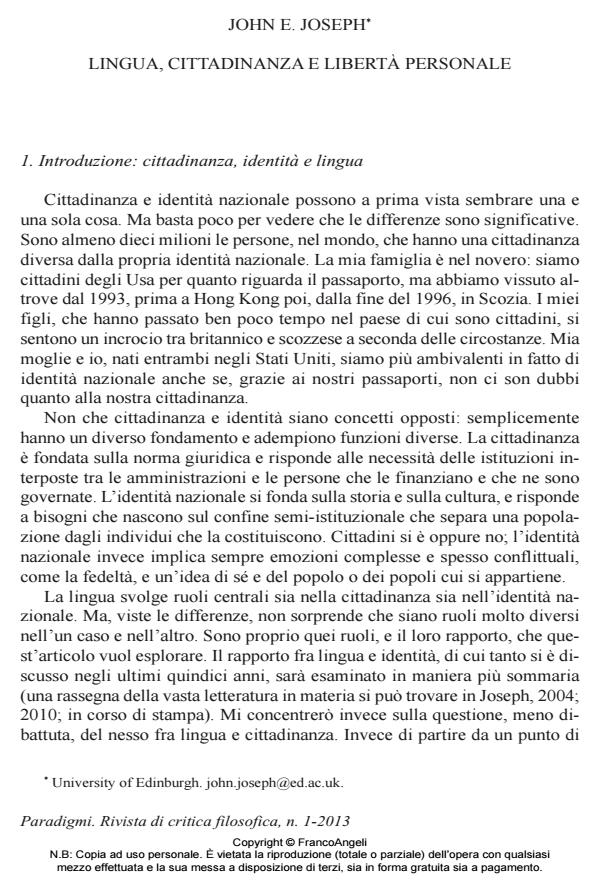Language, Citizenship, and Personal Freedom
Journal title PARADIGMI
Author/s John E. Joseph
Publishing Year 2013 Issue 2013/1
Language Italian Pages 19 P. 91-109 File size 185 KB
DOI 10.3280/PARA2013-001006
DOI is like a bar code for intellectual property: to have more infomation
click here
Below, you can see the article first page
If you want to buy this article in PDF format, you can do it, following the instructions to buy download credits

FrancoAngeli is member of Publishers International Linking Association, Inc (PILA), a not-for-profit association which run the CrossRef service enabling links to and from online scholarly content.
Citizenship has its basis in law, and fulfills the needs of the institutions that lie at the interface between governments and the people who fund them, and whom they serve. National identity has its basis in history and culture, and fulfills those needs that arise at the only semi-institutionalised interface between a people and the individuals who constitute it. Language has central roles to play in both citizenship and national identity, but there is a particular paradox in the case of language and citizenship: accepting the language of the receiving country potentially compromises their personal freedom to maintain their linguistic identity. Yet rejecting that language can mean that other freedoms are denied them.
Keywords: Language and citizenship, Language and cultural value, Language and immigration, Language and identity, Language policy, Language rights
John E. Joseph, Lingua, cittadinanza e libertà personale in "PARADIGMI" 1/2013, pp 91-109, DOI: 10.3280/PARA2013-001006